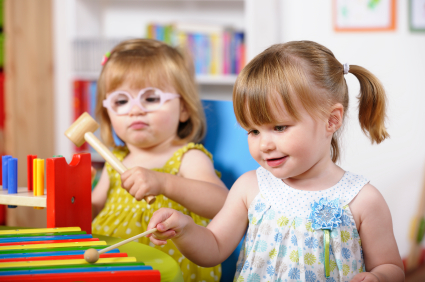Learning Through Play With Toddlers

Sure, it’s fun. But when you’re a toddler, play is serious business, too. It’s one of the most important ways to learn, develop, discover the world and understand how people and things relate to one another.
As a parent, you can provide a safe environment for play and support your toddler to:
- Play actively. Toddlers need at least 60 minutes of physical activity every day to help build strong bones, muscles, heart, and lungs. Try dancing, jumping, running, rolling, skipping or any other motion your toddler enjoys.
- Play with other children, when possible, to help learn social skills like cooperating and sharing.
- Play in ways that help him learn about the world around him.
- Play in ways that foster her creativity.
Resources & Links:
HealthLink BC: Your Child and Play, From Birth to Three Years
HealthLink BC: Playground Safety
-
Methods to Monitor Child Development:Monitoring child development is essential for identifying potential issues and providing timely interventions. Here are various methods that can be used, encompassing different aspects of development:1. Formal Ass
-
It may not seem like it, but your child is developing speaking skills quicker than you think. We can sometimes take for granted the ability to express a wide array of emotions -- happiness, sadness, anger -- using language. Infants cry when they need
-
Though you may think there is very little one-year-old children can be formally taught, this is not the case. A one-year-old childs growth and development have barely begun -- he is clearly not ready for formal education, but there are some things yo


